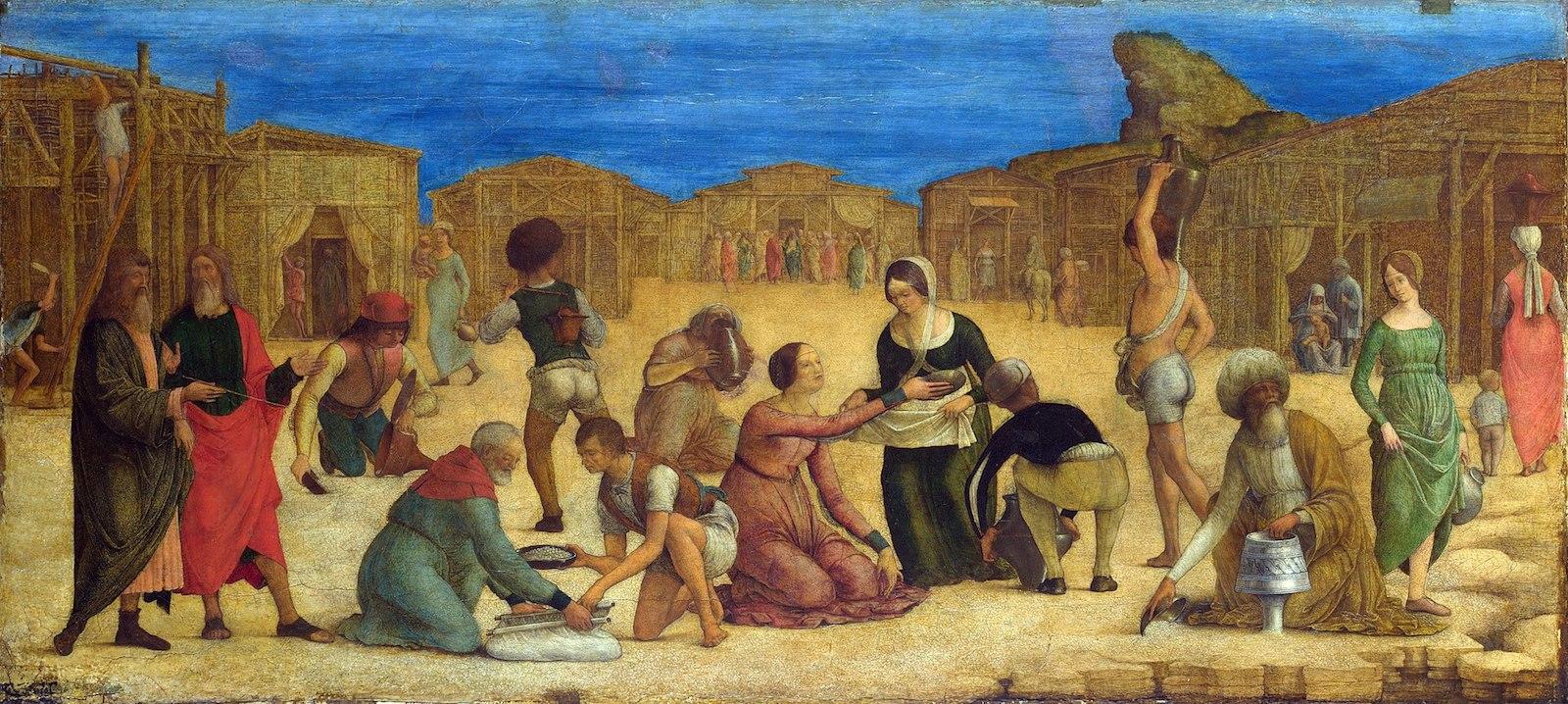
In this week's Torah portion, Beshalach, there's a key word that repeats over and over: Mah, meaning "What?" Sometimes it means, synonymously, "What for?" (One of the Hebrew words for "Why," which is lamah, literally translates syllable by syllable as "for what?")
What for did we let those Israelites go? (Pharaoh and the courtiers ask themselves)
What for did you bring us out of Egypt if we are going to die in the Sea, or in the wilderness, of hunger. or of thirst? (the Israelites ask Moses)What for are you quarreling with me, and testing God? (Moses asks them in return)
And perhaps most puzzling of all: food falls from the sky, and the people ask Mahn hu? "What is it?" (It's from mahn that we get the name for the food from that day until now: manna.)
What is it with all this "what"?
The Torah, the Haggadah, and the Simple Child
Every year in synagogue, we read the story of the Exodus once from the Torah. But every year at home, we read it at least once--in my family, more than once--in the Passover Haggadah. And in the Haggadah, "What" is the hallmark of the Simple Child.
Mah zot? "What is all this," the Simple Child asks? Unlike either the wise or the wicked child, who want to understand the Why, and unlike the child who doesn't even know how to ask a question, the Simple Child is stuck on What.
Look again at those questions from Parshat Beshalach.
These are not conversation-enders. They are questions
that engage in conversation and carry it further: precisely the kind of
conversation we think and Zornberg thinks God wants us to engage in! (and far
preferable to holding our feelings in silence)
So, if the "Mah questions" in this week's portions are not a search for what Humpty Dumpty in Alice calls a nice knock-down answer, a once and for all, why on earth should we think the Simple Child is asking for that kind of finality?
It seems to me that the "Mah" in both this week's portion and in the Haggadah could be an open-ended question, inviting the kind of dialogue that it is not a challenge but more like a caress. It seems to me that it's the kind of word that has a different flavor each time you take it in, like manna.
God bless the simple child who's got his own...question.
----------------------------------------------------------------------------------------
I'm reading through Avivah Gottlieb Zornberg's amazing commentary on the biblical Book of Exodus, The Particulars of Rapture. Each chapter expounds one of the portions we read in the synagogue weekly. It's slow going because it is so rich with insights. To keep on track, I will post at least one insight weekly between now and mid-March, when (God willing) I finish the book.